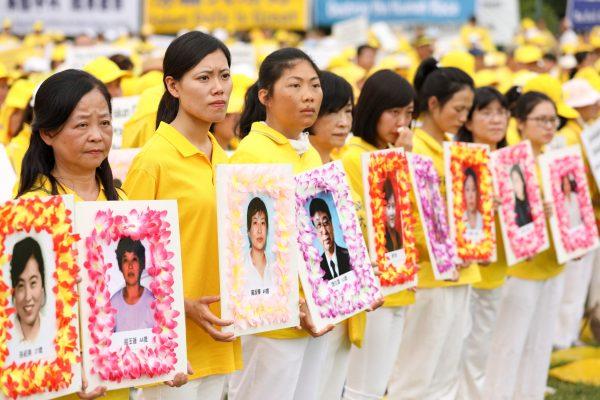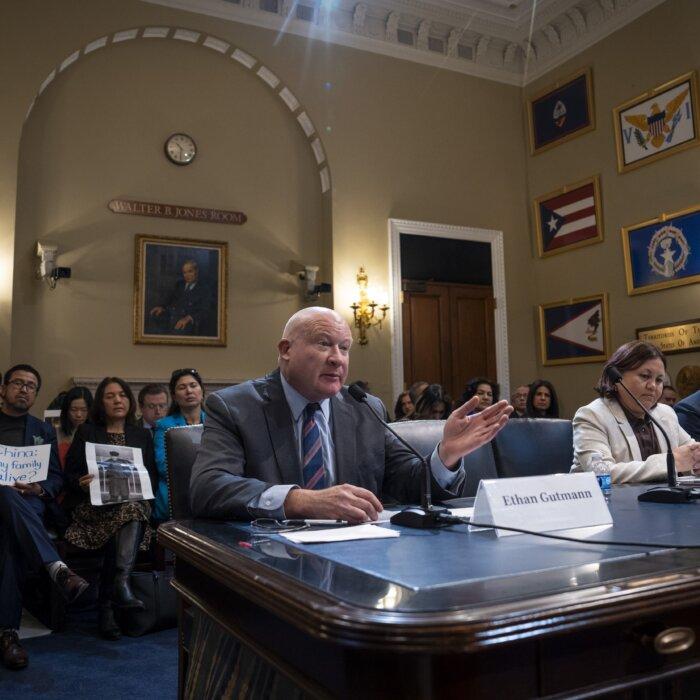An Arizona bill that would have blocked funding for Beijing’s state-sponsored forced organ harvesting made it through both chambers of the Arizona Legislature, with health insurers on board—only to be killed on the governor’s desk.
The bill’s lead sponsor, state Rep. Leo Biasiucci, said the decision so stunned him that he struggled to find the right words.
Ms. Hobbs maintained that her decisions centered on a section blocking health care institutions and research facilities from using China-based gear for genetic sequencing, and insurers from funding such an act.
“While I understand the intentions of the bill, it includes overbroad provisions for genetic sequencing equipment that create compliance challenges for hospitals, healthcare providers, and researchers,” she wrote in the veto letter.
Mr. Biasiucci disagrees.
“We don’t want our DNA being sold to the government of China, knowing that they’re doing what they’re doing with forced organ harvesting,” he said.
If hospitals and universities are using machines from foreign adversaries in ways they should not, Mr. Biasiucci said, isn’t it our responsibility to stop getting them?
‘Very Disappointing’
Mr. Biasiucci wasn’t the only one feeling disheartened.“To see it go all this way—all the amendments, everything that happened—and then all of a sudden it was vetoed, it’s very disappointing,” Diana Molovinsky of the Phoenix Falun Dafa Association, which advocated for the bill’s passage, told The Epoch Times.
“The majority wanted this bill passed. And I would venture to say that the Arizona people want this passed,” she said.
She added that doctors, after learning about the issue, have sought her organization’s advice on how to do their part.
“We were kind of hoping that this would give them that tool,” she said.
In March, Ms. Molovinsky spoke at a senate committee hearing on how Falun Gong, which teaches peaceful meditation and inner moral refinement by adhering to the values of truthfulness, compassion, and tolerance, became a target for abuse by the ruling communist party in China.
“They don’t do drugs, they don’t smoke, they don’t drink alcohol, and they live a generally healthy lifestyle,” she said.
That coupled with how many people practice Falun Gong, estimated at up to 100 million, means that their “organs were the most abundant and most viable” in China.

In the same hearing, Phoenix resident Ding Huiling, who endured repeated arrests and detention in China as a Falun Gong practitioner, said her husband’s young brother was arrested months ago for refusing to give up his beliefs and has since disappeared. She said she worries about his safety.
“Others were envious of him for the special treatment he got in the name of checking his health, but we knew that it was actually for the purpose of organ matching,” he said.
Keep Trying
Both Mr. Biasiucci and Ms. Molovinsky said they wished the governor had told them beforehand about her concerns with the bill.“We were kind of caught by surprise with the veto letter,” Mr. Biasiucci said. “You would hope they'd reach out to you during the process of the bill moving in the Legislature so that you can at least address issues and correct any problems there might be with a bill. We didn’t get that on this bill, unfortunately.”
With the state Legislature not accepting any bill submissions until January 2025, the bill proponents have to wait for almost another year before they can have a go again.
The Arizona governor’s office didn’t respond to questions from The Epoch Times by press time.
Ms. Molovinsky said it’s discouraging that Arizonans now lost an opportunity to be “better informed and make a better choice.”
She said of organ transplant surgeries in China, “You don’t know where that organ’s coming from; you don’t know if someone else has to get murdered for that.”

But Ms. Molovinsky said she does see an upside. Thanks to the bill, she said, Arizona legislators learned about forced organ harvesting.
“They now understand that this is something that’s happening,“ she said. ”It’s not some rumor; it’s not some doctors in the back alley that are going rogue, this is state-sanctioned from China’s government.”
Mr. Biasiucci underwent such a mental transition himself when he first began digging into the issue.
“It’s one of those things where I think it’s so heinous, and nobody wants to believe that it’s happening,” he said.
That lack of attention is why he found it important to run the bill, he said, because at least it brings media coverage and more public awareness.
He said his next step is to reach out to the governor and see what would get her on board.
“I’m not done trying to get this bill passed,” he said. “We have to put an end to it. And the more people that talk about it, the better [off] we are.”







